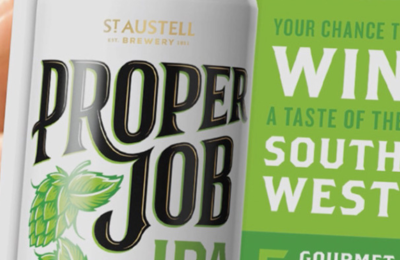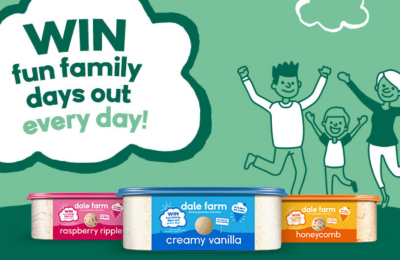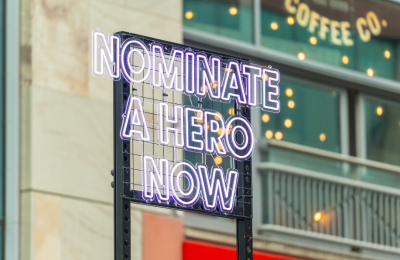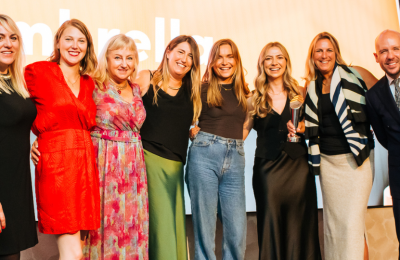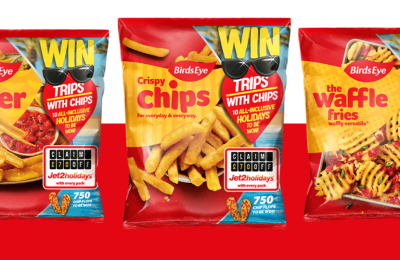Prize packages need to be relevant to brands and consumers, says Justine Clement of The Happy Prize Company
A typical FMCG brand’s customer retention strategy relies upon ‘buying’ loyalty with rewards, rebates and discounts.
However, in this new era of digital-based competition and customer control, customers are increasingly buying products because of a brand’s relevance to their values and needs in any given moment. So what does this mean for the future of promotional marketing?
In a rapidly evolving world, where the global marketplace is both setting the agenda and simultaneously struggling to keep up with the pace of changing behaviour, relevance and purpose are becoming the No.1 criteria from the customer’s perspective.
A (big) shift is required
Broadly speaking, what citizens crave is identity and purpose in a VUCA (Volatile, Uncertain, Complex and Ambiguous) world.
Brands that try to use a bolt-on approach to ethics in an insincere or tokenistic way in this new environment just won’t stand the test of time. It’s both a fascinating and yet a hugely stressful topic for those in the industry, simply because the solutions and the parameters shift almost daily.
Consider this quote, for example:
“Public expectations of your company have never been greater. Society is demanding that companies, both public and private, serve a social purpose… [customers] are demanding that companies exercise leadership on a broader range of issues. Companies must ask themselves: What role do we play in the community?” Larry Fink, CEO, Black Rock
What we’re really talking about is authenticity. Yet committing to our values is actually pretty hard work because the nature of being human means we’re flawed. We all know we need to do better, but we get sidelined and often opt for the short-term, quick fix approach.
The opportunity
People’s attention spans have become more and more limited. Negative news is digested 24/7 and it’s not good for our wellbeing.
Many people now can feel like they’re losing themselves, caught up in a cycle of keeping up. They find themselves getting heavily addicted to things that take them away from the stress, alleviate the symptoms and help them forget their troubles.
So without sounding mercenary, that’s a good opportunity, isn’t it? And if we can marry authenticity with opportunity, we’re onto something.
When it comes to prize promotions, in a world that has shifted dramatically in the past few years, what’s going to help brands connect when it comes to purpose and relevance?
Up until now, options have broadly consisted of cash, vouchers, holidays, cars, experiences and even farms.
Winning cash is undoubtedly appealing, but what has always worked on a more intrinsically motivating level is connecting brand to customer using unique experiences, either as incentives to purchase or to stand out on shelf.
These must tie in with the brand’s ethos and audience appeal, be relevant, professionally delivered, high quality and align with the theme of the campaign itself. Yet in this new era of heightened consumer awareness, offering experiences that help people navigate and deal with an altogether different kind of life could be what’s required.
Just consider; many of us may still be active at 102! It’s a scary thought to some, but with personalised medicine and smart lifestyle choices, it’s a realistic and potentially exciting one, too.
Tapping into this idea through promotional marketing, it’s time see more brands designing prizes that affirm life, purpose and values beyond ego.
Experiences for living. Ones that enhance people’s lives and that reaffirm a brand’s ethos of caring for their customers and the world around them. Ones that demonstrate brands really do give a damn, and that can be the seeds of stories remembered for life.
Holidays and breaks are incredibly generous prizes. They create joy and spread happiness. But what if we took this one stage further and combined them with the potential to change someone’s life?
Brands on board
PepsiCo’s Naked Juice brand recently offered a series of wellbeing experiences that included a yoga retreat on the Isle of Wight. One of the winners told PepsiCo
“Winning this Yoga with Awareness retreat with Naked has made me extremely excited about how potentially life-changing this experience could be for me at this point in my life… The whole experience has given me a new thirst for life and I shall be eternally grateful to Naked.”
Today’s world provides an invitation to discuss something just a little bit different – an opportunity for a deeper connection to purpose and beyond.
While there are brands that change people’s day, there are many, too, who can change lives. There are some incredible examples of the good that can be achieved with on-pack campaigns that tap into more life-affirming concepts.
Persil’s “Dirt is Good” campaign is one. It encouraged kids to get out and get dirty doing activities in nature to stimulate their minds and get them being more active (and it encouraged parents to let them!).
Johnny Walker’s “Joy Will Take You further” was based on insights which showed how success is viewed by people today. It brought to life the idea that joy can be a catalyst to the progress we seek in our lives. The campaign achieved a reach of 50 countries and over 270 million consumers around the world in the first weeks of launch.
McVitie’s recently moved into the purpose arena too, with its ‘Sweeter Together’ campaign, focusing on the issue of loneliness.
Examples like this showcase the potential power mainstream brands have when it comes to creating positive shifts in behaviour.
Brands and mainstream media can undoubtedly achieve powerful, positive shifts in behaviour and create significant legacies. And if people are going to live long, fulfilling and adventurous lives in a world that’s fit for purpose, it’s incumbent on brands to get involved.
So what does your brand want? To be remembered for a day – or for life?
Justine Clement has created and managed many award-winning prize promotions in her 18-year career in the industry. Former CEO of Unmissable, she is now founder of creative prize management agency, The Happy Prize Company. Working with progressive brands in the UK and Europe, the company have handled strategy and prize management for many high-profile on-pack campaigns in recent years. A longer version of this article can be found on the company’s website.

